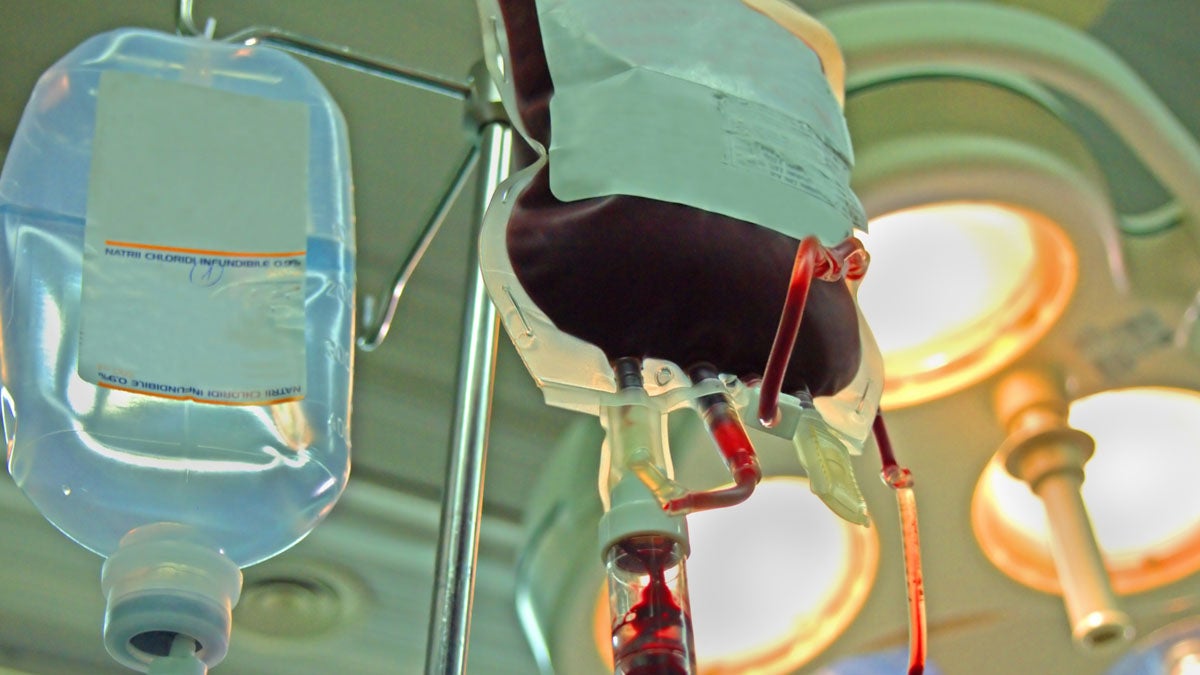Rutgers study finds less blood safe for elderly patients undergoing surgery
Listen Photo via ShutterStock) " title="shutterstock_128890901" width="1" height="1"/>
Photo via ShutterStock) " title="shutterstock_128890901" width="1" height="1"/>
In the largest clinical trial of its kind, new research from the Rutgers Robert Wood Johnson Medical School finds that less blood serves just as well as more.(Photo via ShutterStock)
Blood transfusions revolutionized medicine a century ago, but a seemingly simple question has proved challenging: How much blood is best? In the largest clinical trial of its kind, new research finds that less blood serves just as well as more.
Chief of internal medicine at Rutgers Robert Wood Johnson Medical School Jeffrey Carson said previous studies suggested higher amounts of blood could weaken immune defenses, and make patients vulnerable to infections or recurrent cancer. On the other hand, larger volumes might prove beneficial, especially to people with heart problems.
“If you give more blood, it potentially delivers more oxygen to the heart, and the heart is a very vulnerable organ,” explained Carson, who was the lead author of the new study.
To find out the best option over the long term, Carson and colleagues enrolled about 2,000 patients, about half older than 85, with or at risk for cardiovascular disease in a study randomizing the amount of blood they received after hip surgery.
Half the patients received enough blood to maintain a higher level of hemoglobin, while the other group maintained a lower level. Using the more stringent threshold meant some patients did not get blood when they would have had they been assigned to the other group. Overall, the difference in the amount of transfused blood was substantial, with the first group receiving an average of nearly three times more volume.
The researchers found both groups had the same mortality during more than three years of follow-up.
“There was no difference in overall death rate,” said Carson. “And there were no differences in the underlying causes of death.”
The results, published this month in The Lancet, support a growing body of evidence that using less blood is safe. They also dispute the notion that higher amounts of blood can be detrimental.
Since blood has some inherent safety risks, for most people fewer transfusions make sense, said Carson.
“We think this is really good for patient care,” he said, “and of course, the cost of medicine.”
More blood still might benefit those who have had heart attacks, Carson acknowledged, but that will need a study of its own to test.
WHYY is your source for fact-based, in-depth journalism and information. As a nonprofit organization, we rely on financial support from readers like you. Please give today.

